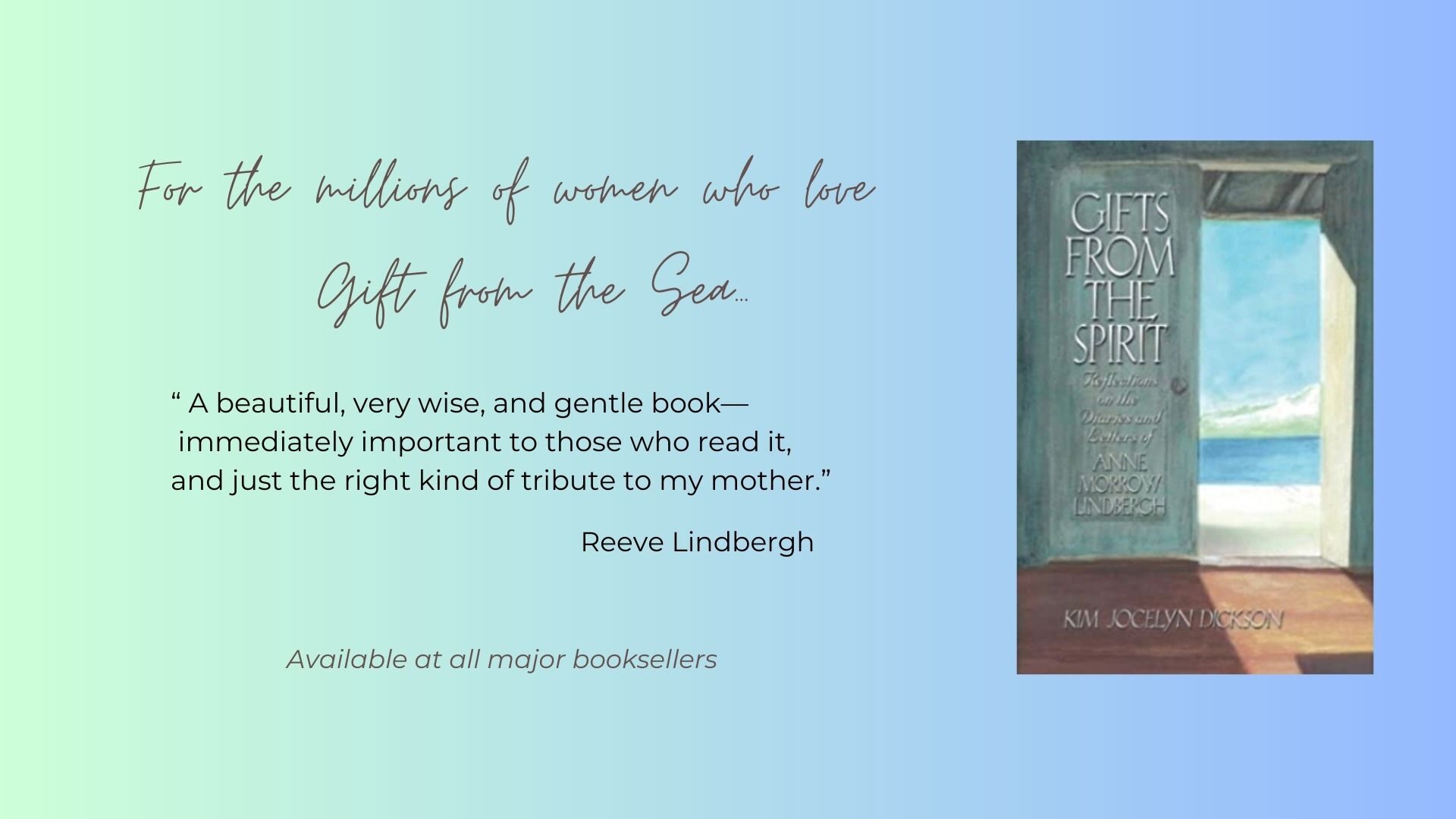(Excerpt from Gifts from the Spirit: Reflections on the Diaries and Letters of Anne Morrow Lindbergh, 2002, 2014, copyright Kim Jocelyn Dickson)
“She said too what I have learned lately, that when one is ‘vegetating’ one is growing.” Anne Morrow Lindbergh, LOCKED ROOMS AND OPEN DOORS, p. 374
Anne was visiting with an old family friend, Mrs. Neilson, the wife of William Allan Neilson, the president of Smith College. They discussed marriage, love, the importance of not separating the body and the spirit, having passion for work, and a German poet–Rainer Maria Rilke. It was a rich conversation for Anne who gleaned wisdom from Mrs. Neilson both in what she said and what she didn’t say.
And she confirmed Anne’s growing sense that even when she felt herself to be in a fallow period, she was still growing.
The past year had been difficult. The highly publicized trial of the man accused of kidnapping and murdering her child and the death of her sister, Elisabeth, rekindled Anne’s grief. She struggled to be hopeful about the future and to move forward. She was ready to begin her second book but found it hard to settle in to work.
But she had a feeling that even though she seemed to be in a state of dormancy, below the surface her creativity and energy simmered. She was learning, and in due time this would be apparent.
She was right. Not long after Anne’s conversation with Mrs. Neilson, she and Charles and their three-year-old son Jon moved to England. There she found relief from many pressures and painful reminders and settled in to a life of peace that enabled her to write her next book Listen! the Wind. It proved to be a richer, more complex book than her first. She had clearly grown.
Rainer Maria Rilke’s work became increasingly important to Anne, both validating and shaping her understanding of her life and herself as an artist. In Letters to a Young Poet, Rilke wrote in 1903 what Anne came to know for herself:
Allow your judgments their own silent, undisturbed development, which like all progress, must come from deep within and cannot be forced or hastened. Everything is gestation and then birthing. To let each impression and each embryo of a feeling come to completion, entirely in itself, in the dark, in the unsayable, the unconscious, beyond the reach of one’s own understanding, and with deep humility and patience to wait for the hour when a new clarity is born; this alone is what it means to live as an artist: in understanding as in creating.[i]
Anne came to see that she could trust whatever stage she was in. That even during times when she didn’t feel herself to be flourishing and wasn’t outwardly productive, below the surface, deep in her unconscious, life was brewing.
I know this too. When I was a seminary student I discovered Anne Morrow Lindbergh’s work and became impassioned by it. I knew then that I wanted to write about her someday. I was far from ready to do it, but a deep desire was born then and continued to grow. Now, after a gestation period of nearly twenty years, I am writing a book I couldn’t have conceived much less written then.
As much as we’d like to, we can’t put our dreams on a schedule. “In this there is no measuring with time, a year doesn’t matter, and ten years are nothing.”[ii] Did it ever seem like I might never write my book? Many times. The curves that life throws you often seem like obstacles between you and what you desire. But the reality is they are opportunities to take you further into yourself, into that deeper place Rilke speaks of that is the genesis for all our creativity and passion. Like the tree ripening in the spring, he says, we can stand confidently in the storms, unafraid that summer may not come afterward. Summer does come.
If we pay attention to what’s happening in our inner lives and trust the wisdom that comes from there, fruit that we can see and touch will appear.
[i] Rainer Maria Rilke, Letters to A Young Poet, trans. by Stephen Mitchell (New York: Random House, 1984) p. 23-24.
[ii] Ibid.

